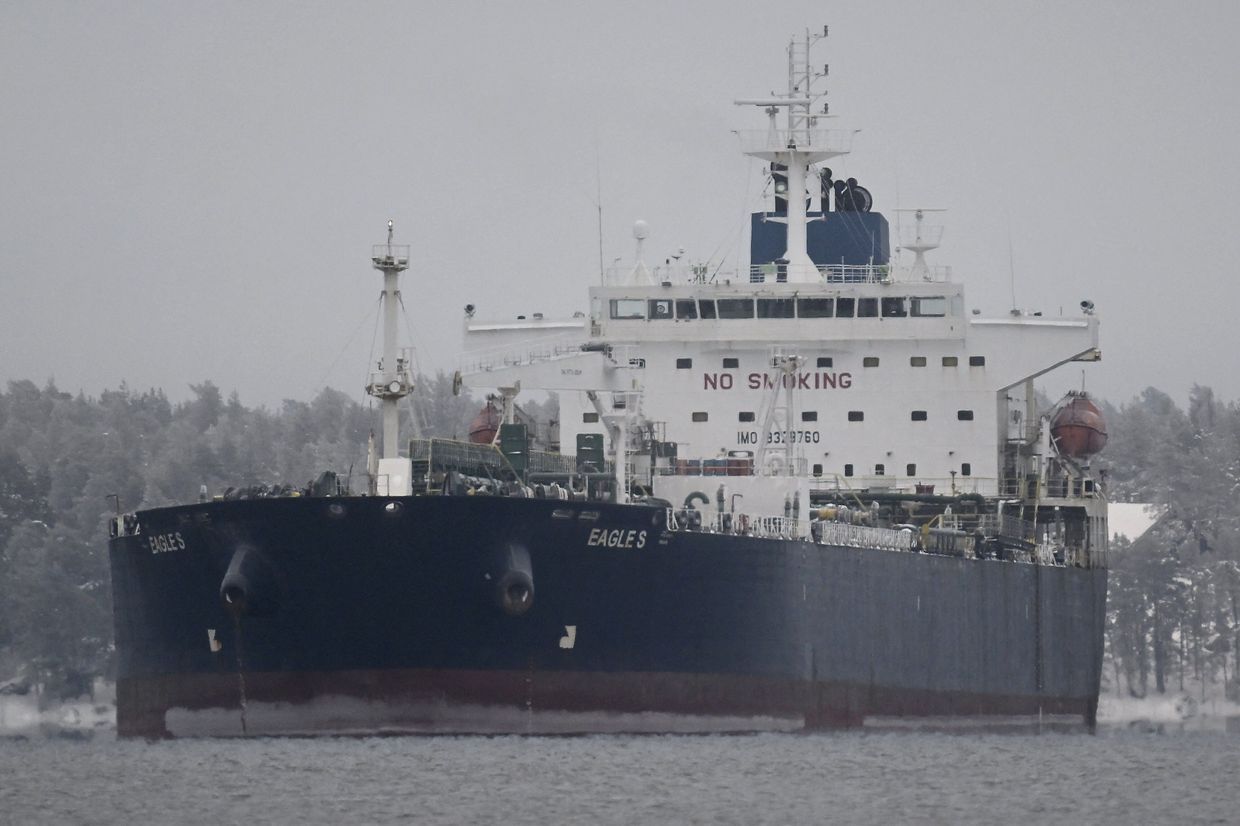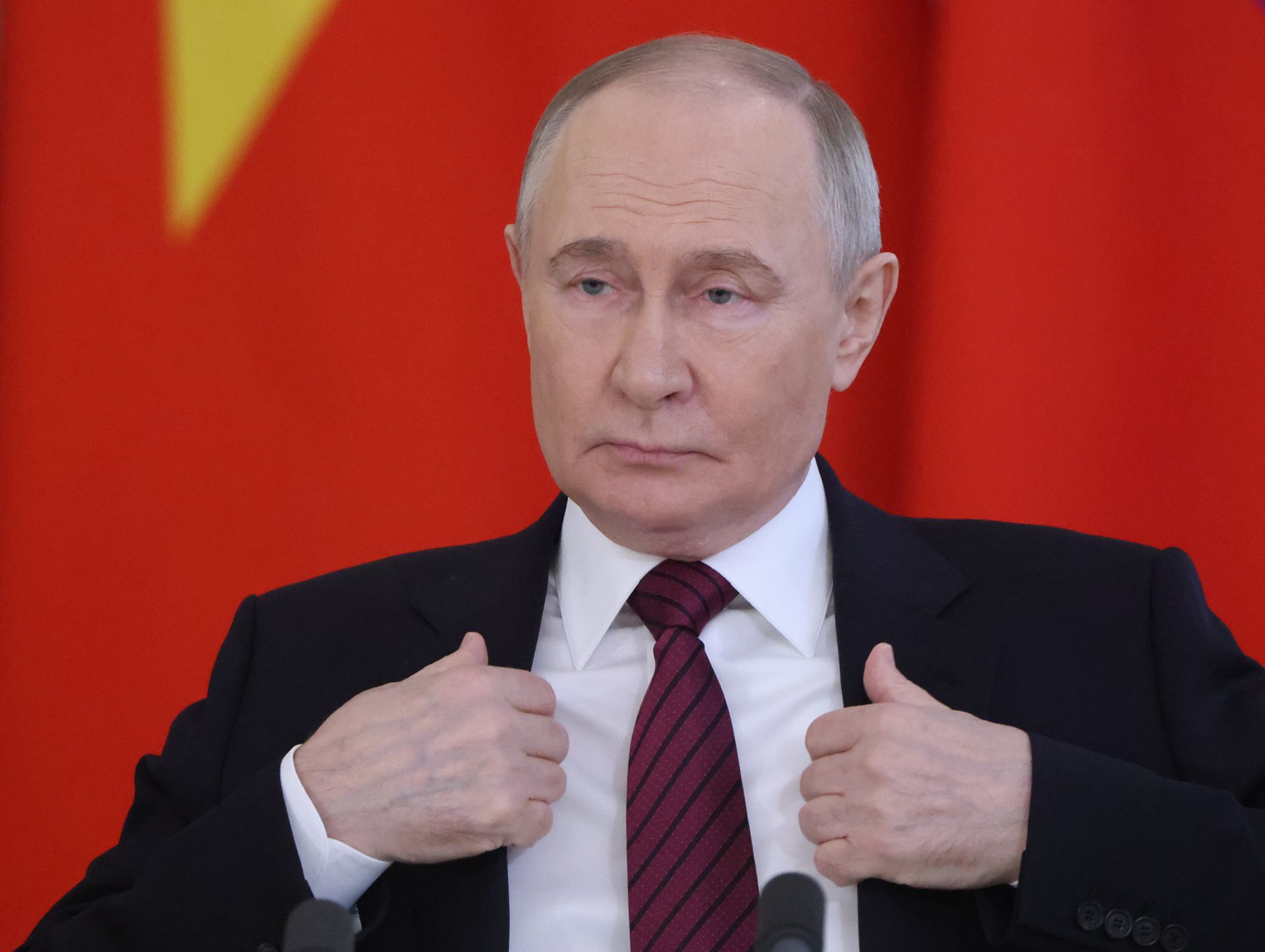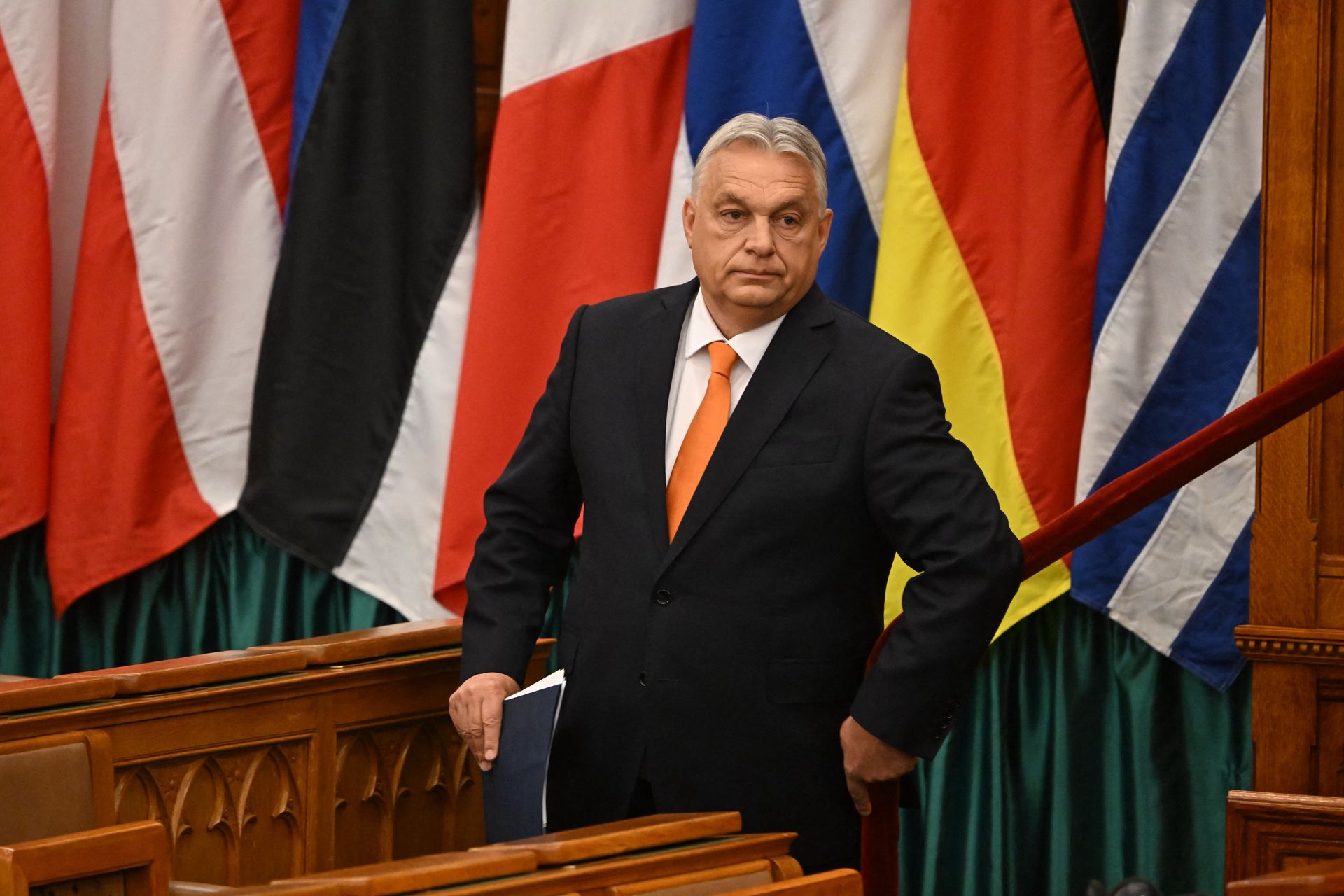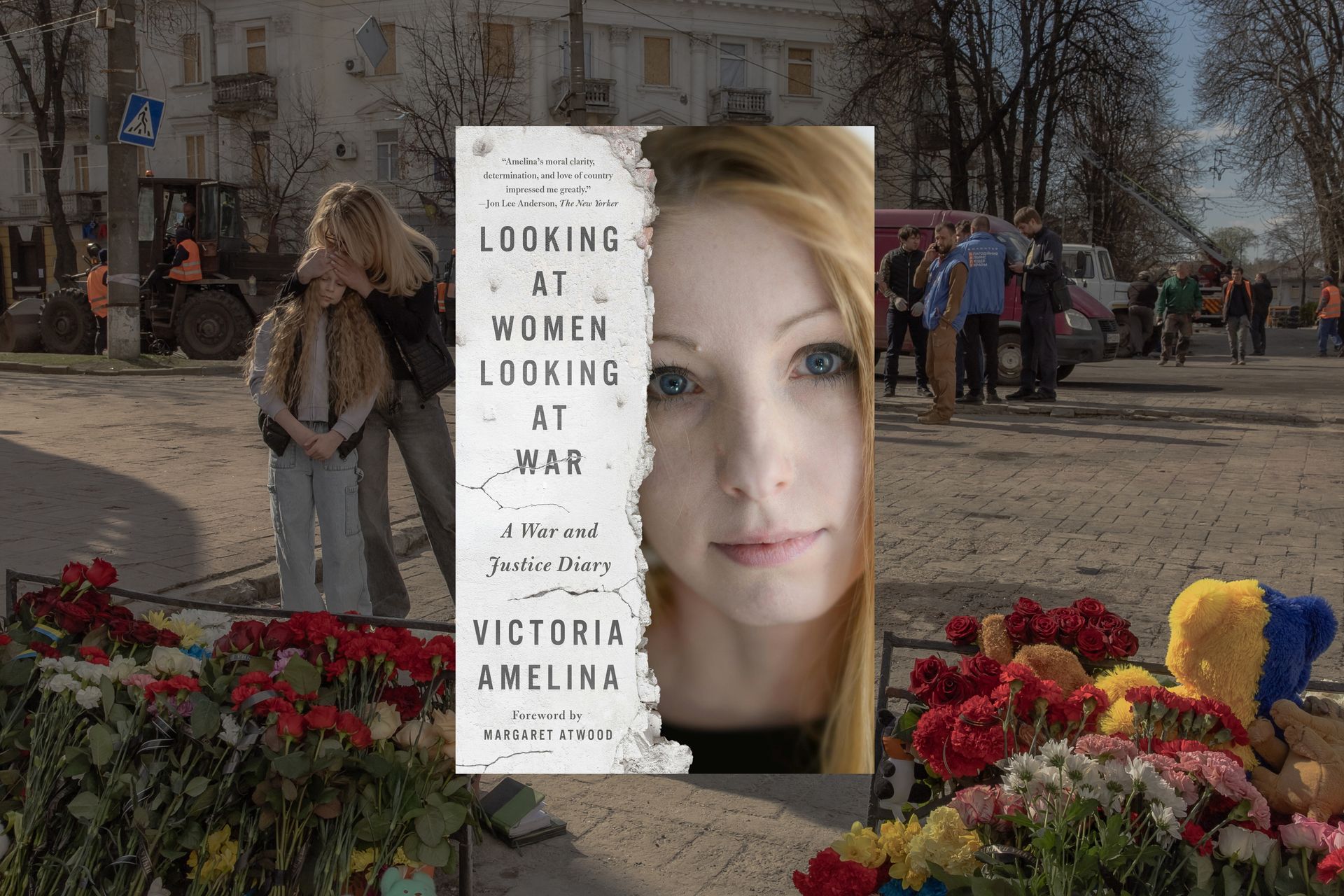
Despite the hype, EU's latest Russia sanctions 'not as strong as they should be'

The European Union’s 17th package of sanctions against Russia, agreed on May 14, is being hailed in Brussels as a symbol of steady resolve.
European Commission President Ursula von der Leyen welcomed the move, insisting it would "keep the pressure high on the Kremlin."
But outside the EU bubble, critics see it as another incremental move that fails to match the urgency of the moment, and behind closed doors, even EU officials acknowledge the package was watered down during negotiations.
The sanctions package comes at a potentially pivotal moment in Russia's full-scale invasion of Ukraine, announced after the Kremlin once again refused to agree to a full, 30-day ceasefire.
Russia's counterproposal — direct talks between Kyiv and Moscow in Turkey on May 15, appear to be going ahead but much skepticism remains over Moscow's genuine desire to advance the peace process being pushed by Ukraine, Europe, and the U.S.
"It’s better than nothing," Oleksandr Merezhko, a Ukrainian lawmaker and chair of the parliament's foreign affairs committee, told the Kyiv Independent, adding the package is "not as strong as it should be."
"My guess is that the EU is waiting to see whether or not (Russian President Vladimir) Putin will start negotiating seriously on a ceasefire," he said.

The new sanctions package
On paper, the new package is ambitious. It includes a significant expansion of the shadow fleet blacklist — vessels used to covertly ship sanctioned Russian oil — bringing the total close to 200.
Dozens of new names are on the sanctions list, including individuals from Russia’s military and political elite, as well as foreign entities in China and United Arab Emirates accused of helping the Kremlin evade earlier restrictions.
The EU will also sanction more than 20 entities and individuals disseminating disinformation, and 20 judges and prosecutors involved in legal cases against Russian opposition, specifically Vladimir Kara-Murza and late Alexei Navalny.
It also targets components vital to Russia’s defense industry — chemicals, materials, and dual-use goods.
“Sanctions should be so heavy that they would force Russia to shut down its aggression, or face total economic ruin.”
"The message to Russia and its supporters is crystal clear — the EU is going to keep tightening the screws," an EU official told the Kyiv Independent on condition of anonymity.
And yet, in Ukraine and European countries bordering Russia, few are convinced.
"The sanctions should be stronger," Pekka Toveri, a European parliament member and the former head of Finland’s military intelligence, told the Kyiv Independent, adding that "the whole shadow fleet should be included in the sanctions," including the third parties enabling its activities.
His frustration mirrors a growing sentiment in Kyiv and among Russia’s neighbours — Europe is still holding back, or being held back.
A senior EU official involved in the talks acknowledged the package had been watered down during negotiations, telling the Kyiv Independent that "the Commission presented changes to the package following comments from member states."
"Most of the changes are rather minor," they added.
But these "minor" adjustments are symptomatic of a deeper malaise — a persistent unwillingness among some EU capitals to sacrifice economic ties for strategic clarity.
One of the biggest elephants in the room remains energy. The EU has announced a roadmap to end its dependency on Russian energy by 2027, including an immediate ban on new gas contracts and the phase-out of existing short-term deals by the end of this year.

It’s a critical step — finally — but it comes years after the start of Russia’s full-scale invasion of Ukraine.
"The termination of Russian imports to Europe should have been done earlier and with a tighter time schedule," Toveri said.
The delay has had huge costs — billions continue to flow into Kremlin coffers thanks to residual energy imports.
Hungary and Slovakia, the bloc's only pro-Kremlin countries, remain openly resistant to full energy embargoes, and the EU’s structure — requiring unanimity on sanctions — means any one country can block broader action.
"Targeting Russian energy imports is difficult," Toveri said. "Hungary and Slovakia would likely block decisions."
The fact the latest package was passed is in itself less a sign of a rare consensus in European unity, and more a sign of the limitations of the sanctions.
According to Euractiv, Hungary and Slovakia only agreed to pass the package as it was relatively weak, and future, stronger moves from the EU to sustain pressure on Moscow while encouraging a ceasefire and peace negotiations with Ukraine, might not be so easy.

The sanctions regime has always walked a tightrope between political unity and economic pain. In Brussels, policymakers trumpet the cumulative effect of these measures.
"The sanctions are working, and the Russian economy is struggling," the first EU official said. But such claims, while true in part, paper over the reality — the Russian war machine continues to grind on, and the EU's measures are still playing catch-up.
Another official admitted to the Kyiv Independent that "broader sectorial sanctions would make EU sanction policy even stronger," but such measures remain unlikely in the near term.
The 17th package also arrives at a particularly cynical moment in Russia’s diplomatic playbook. While the Kremlin outwardly engages in stalling peace negotiations, its military operations intensify.
This context, critics argue, demands a bolder EU response. "Sanctions should be so heavy," Toveri said, "that they would force Russia to shut down its aggression, or face total economic ruin."
But this package, for all its additions, feels more like a fine-tuning than a turning point.
Behind the scenes, officials insist that the broader sanctions puzzle is more complex. The senior EU official pointed out that in parallel to the 17th package, the EU is working on measures related to Russia’s hybrid warfare, human rights abuses, and the use of chemical weapons.
"The EU is working at full speed to make a substantial impact on Russia," they said.
Still, the real question isn’t whether the EU is moving — but whether it’s moving fast enough, or forcefully enough, to make a decisive difference.
As Ukraine braces for a brutal summer and Russia doubles down on its offensive, time is not on the EU’s side. If the goal is to cripple Russia’s ability to wage war, the sanctions must match the scale of the threat.
The 17th package may be another step forward. But in Kyiv, the view is clearer — it's still too little, too late.

Most Popular


Journalist Roshchyna's body missing organs after Russian captivity, investigation says

Ukrainian sea drone downs Russian fighter jet in 'world-first' strike, intelligence says

Ukraine is sending the war back to Russia — just in time for Victory Day

Kremlin says Russia ready for mass mobilization like in WWII 'at any moment'
Editors' Picks

How medics of Ukraine’s 3rd Assault Brigade deal with horrors of drone warfare

As Russia trains abducted children for war, Ukraine fights uphill battle to bring them home

'I just hate the Russians' — Kyiv district recovers from drone strike as ceasefire remains elusive


